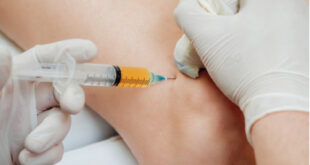By Carlos Eduardo Ramírez, MD, Gynecology –
Vaginal Atrophy (weakening of the vaginal tissues) occurs mostly in menopause or at any other time when the quantity of estrogen decreases. It may be described as a thinning, dryness and inflammation of the vaginal walls usually due to a decrease of estrogen levels. Having less estrogen, the vaginal tissues become thin and the vaginal mucosa remains dry and less elastic, thus is much more fragile and prone to causing pain and bleeding.
Vaginal Atrophy may occur at perimenopause (years before menopause), after menopause , or at any other time when the production, or availability of estrogen decreases . The decrease in estrogen production usually occurs:
• during menopause
• during perimenopause
• in lactating women
• after surgical removal of the ovaries
• with low dose contraception
• with some treatments for cancer.
For many women with vaginal atrophy, sexual intercourse is painful and because of pain there may be decreased sexual interest. These changes in the vagina may also predispose for recurrent urinary tract infections.
There are effective low cost treatments for vaginal atrophy. Having a decrease in estrogen levels in the body does not mean that a woman should live with the discomfort or decrease in sexual interest. Approximately half of postmenopausal women may be suffering from vaginal atrophy, but few of them seek medical treatment for this condition. Many may be resigned to having this problem or just are too embarrassed to discuss the symptoms with their gynecologist.
Among the most common presenting symptoms are:
• vaginal dryness
• vaginal burning
• vaginal discharge
• itching in the genitals
• burning or urgency
• recurrent urinary tract infections
• urinary incontinence
• light bleeding after sex
• painful intercourse
• decrease in vaginal lubrication during sex
• vaginal canal shortening
There are risk factors for vaginal atrophy that include: smoking, not having had vaginal deliveries and lack of sexual activity.
Therapy for vaginal atrophy is diverse, and must be individualized taking into account your medical history and symptoms. Among them there are vaginal moisturizers, water-based lubricants, vaginal estrogen therapy and oral estrogen. Frequent sexual activity, can prevent vaginal atrophy because this increases blood flow to the vagina, which makes vaginal tissues healthy.
Consult your gynecologist for options to improve and maintain your vaginal and sexual health.
Check Also
The Mighty Maestro: Bob “Mighty Mite” Toski’s Enduring Legacy at 98
In the warm glow of a spring evening in Delray Beach, Florida, a remarkable celebration …
 South Florida Health and Wellness Magazine Health and Wellness Articles
South Florida Health and Wellness Magazine Health and Wellness Articles




